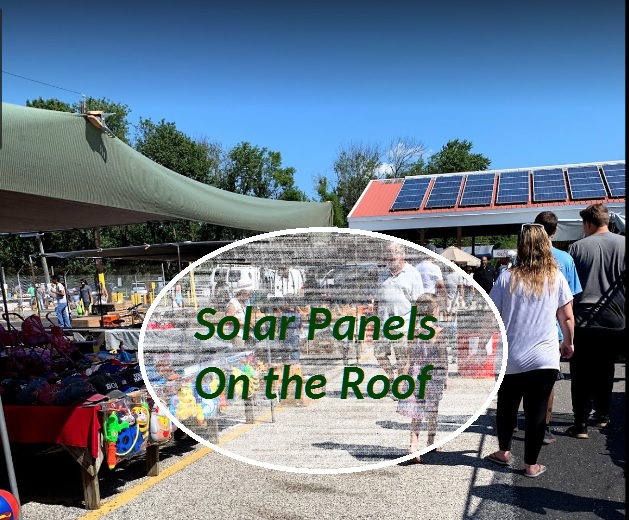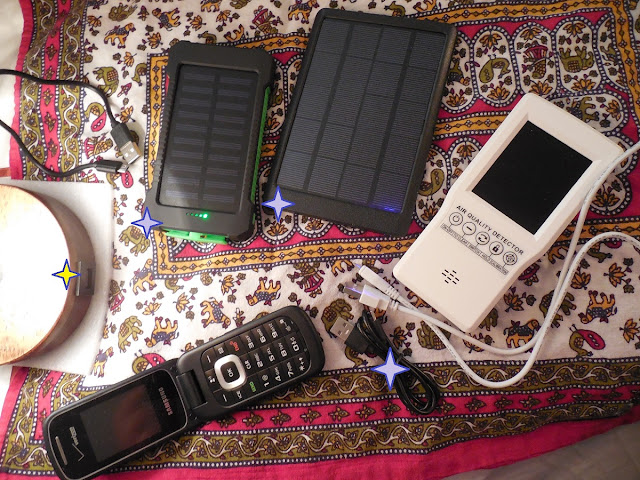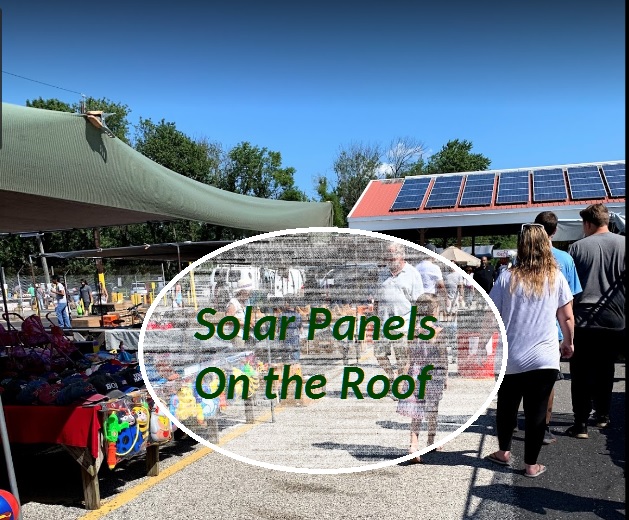The Case for Emergency Solar
I wish I could say that we'll never need emergency solar power. Or emergency power in general. But most people feel better if they have a second source of power if needed, even in good times. Lots of people have a secondary source of heat or power in their home, you wouldn't be the first. But if you don't and you want it, why not solar? So here are a few ideas, even if you're not a "prepper" by nature.
I'm a rainy day prepper. When I feel a threat, even far away, I think, OK time to evaluate the situation. And sometimes I don't improve it. The return on investment (ROI) may not be there for me. My trust in "social fabric" is actually quite healthy. I'm not one of those who thinks that society is just about to break down. Partly I just think electronics are fun. I was born with the engineer gene, you either have it or you don't.
However, the war in Ukraine has triggered a sleeping fear. I don't think it will end easily and I think it's reasonable to take a few more precautions.
Anyway, it could be instructive to use more solar... as we move toward less dependence on oil and gas. It's possible that it could work out cheaper in the end. And resilience is always a good goal.
While I'm discussing war, there have already been several nuclear threats made. It might be good to ask your pharmacist for those cheap nuclear safety iodine pills they are supposed to carry behind the counter. They shouldn't cost you more than a few dollars, definitely less than $10.
Don't get scammed online. There's a product called Iodoral that comes in various dosages of iodine. It's expensive, but not for nuclear fallout purposes. It's use is for some people with thyroid problems who find it helpful, some people can't function without it. But some scammers will try to sell it as better than the cheap iodine that's widely available and will protect you from nuclear fallout.
So let's talk solar. Here are some benefits to having a small solar generator at home right now:
1. Your vanlife living can be more comfortable, if you're doing that. Or your outdoor parties.
2. Your porch or patio can have more services which can be turned off and brought inside safely when you're not home.
3. If you only lose power for a few hours, you can potentially run your refrigerator or freezer for 30 min to an hour with a small one, saving the food inside. Just don't open the doors.
4. If you lose power at night, you can still use your CPAP or electric blanket ( or any other sleeping comfort or medical items ).
5. You have some flexibility in how you live while you repair things in your home. If you have to remodel, you're not living off Door Dash, you can make some meals.
6. You can run your lights and camera and PC at beautiful locations and either as a business or a hobby, take lovely pictures. Or vlog.
7. You don't need to let the house heat up if your power goes out in the summer. Hook up your window AC to a solar generator and you can at least keep one room cool.
Need I go on? Imagine being able to bring electricity with you anywhere you go. And being protected (somewhat) against losing power.
Note that you can also get whole-house solar installed but it seems incredibly expensive, increases your taxes and there seems to be all sorts of red tape around it. I tried to figure it out and honestly, it's way easier to spend $10k on consumer solar or a Tesla power wall / solar system than the legalese nonsense I was reading from the State. If NC is serious about getting more solar in the state, they'll have to simplify the process. I mean, why spend that much and then not even get a mobile system out of it?
If you want to try to figure out the incentives and rebates and all that financial stuff, you can start here, but watch out for scammers claiming it won't cost you anything. https://www.energy.gov/eere/solar/homeowners-guide-federal-tax-credit-solar-photovoltaics
I think to truly democratize power generation, we need a generation of kids that are taught electrical concepts from middle school onward, and get a basic apprentice level electrician's license when they graduate high school. Then we'd get somewhere on having a resilient society. Stop arguing about banning books and start figuring out how to teach kids useful skills.
Consumer solar generators
Let me pause here for a minute. 1500W means you can plug something 1500W into it, such as a regular stovetop in your kitchen (not an energy efficient appliance), and it will run continuously from that battery for 1 hour or thereabout.
1000W means you can't run anything above 1000W on it, but anything that wattage or lower will be fine. Most "energy efficient" small appliances will be below this number such as blenders. Again, something 1000W will run the battery out in 1 hour.
After the batteries are out, you can recharge them with solar power from the panels. The time required may be as long as 8 hours. The number of panels it accepts and how much voltage it can take depends on the battery pack.
Safety warning: Solar panels are always ON, turn them facing the ground, or cover, when not in use, to avoid electric shock. You can get safety circuits but it's always safer to cover them also.There are more brands too...
Homemade solar generators
If you are more techy, you can actually build one that will keep your fridge running for 24 hours. I would warn you that to mess with this without knowledge can lead to deadly electric shock. For one thing, solar panels that receive sunlight are always ON, they have no off switch. It's not like there's a circuit breaker. The remedy is to keep them turned upside down until ready! However, it's possible to save money and build a much more sophisticated power station than the ones you see for sale. Here's a video to get you started. I suggest you watch a few times and then work together with someone else even if you think you know how to do it.
In case this one gets taken down for whatever reason, here's a few more that I thought were interesting. I haven't tried to do this. I am interested in learning more about electrical systems and then I think I would be willing to wade in. I like the ones where they make the batteries, I think that can be a huge savings if you can get parts recycled. And it saves those bits going into the landfill.
That last one would limit you to items that pull only 1000W or less but you're likely already seeking such items.
Examples:
110V Portable Small Hot Plates, Multifunctioal countertop burner for Cooking 500W Electric Mini Stove Hot Plate Home Heater (US Plug )Tangkula Electric Baseboard Heater, 500W/1000W Fast Heating Base Board Floor Heater w/ Tip-over & Overheating Protection, Baseboard Convection Heater w/ Silent Operation for Home & Office💙💛
To help Ukraine, this is the best way to give: https://u24.gov.ua/ United 24
If you want to only give humanitarian aid, focus on Unicef, you can give money and request it be used to help Ukraine.
Be careful of scams as always. Better to use one of the above two options.
You can also seek out refugee help centers and ask them if you can help. Be aware, those are usually churches. This sometimes limits people's giving, since some people don't want to give to religious organizations. You can also limit your giving to certain organizations to gifts in kind. If you think an organization may use your money for political gain that you don't agree with, you can just give items they need to carry on their work on behalf of people affected by a disaster. Many have an "Amazon wish list" that's updated with current needs, email them and ask.



